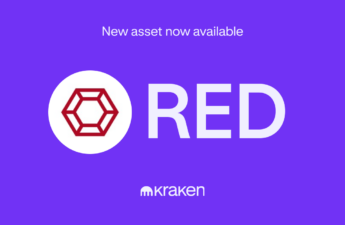About the Author
Alexander Zaidelson is the CEO of Secret Labs, or SCRT, which specializes in scaling technologies to ensure privacy across Web3. He previously served as Chief Business and Data Officer of Israel-based decentralized exchange (DEX) VirtuSwap, where he remains a strategic advisor.
The views expressed here are his own and do not necessarily represent those of Decrypt.
We often talk about the value of “decentralization” delivered by blockchain technology. This term often represents robustness, censorship resistance, and a “bottom-up” system of support that could help secure and democratize world-changing applications.
The benefits of decentralization are already being realized across a number of major fields, including finance (DeFi), physical infrastructure (DePIN), social networks (DeSo), scientific research (DeSci), artificial intelligence, and more. Realistically though, these applications are heavily restricted by a critical issue: data confidentiality.
Since most traditional blockchains are fully transparent, user data is instantly public and can be used for analysis and research. This makes Web3 much less suitable for institutional players and, in some cases, makes its use truly impossible. How can we protect the sensitive raw data demanded by each of these and hundreds of other applications while still reaping the benefits of decentralization?
The answer is decentralized confidential computing, otherwise known as DeCC.

Confidential computing has existed for years but has often been lumped together with privacy chains, a misunderstanding that hides the true power of this technology. DeCC is a distinct category that can secure compliance and corporate use cases.
DeCC meets the blockchain
Confidential computing is the ability to protect data during processing and it has been a critical offering in the Web2 world. Companies like Microsoft, Google, IBM, NVIDIA, and others already offer powerful confidential computing solutions.
However, this industry mega-trend is only now becoming understood in the Web3 world. Buzzword-heavy initiatives like “decentralized AI” and DePIN have exposed the limitations of completely transparent blockchains, and builders are turning to decentralized confidential computing as the solution.
DeCC provides protected computing, making it possible to perform arbitrary computations on data without revealing that data to the world. It is important, however, to distinguish confidential computing blockchains from projects focusing solely on transactional privacy, such as Monero or ZCash.
We are seeing this technology enable hundreds of new use cases across Web3 infrastructure. To name a few:
Confidential trading strategies for DeFi
AI model training on confidential data
AI models with confidential parameters
Sealed-bid auctions for DeFi, DeSci, and NFT worlds
NFTs with protected data, enabling true ownership of content on Web3
Confidential on-chain voting (e.g. for DAOs)
A decentralized on-chain identity that doesn’t reveal data to everyone
Multiple gaming use cases
Confidential computing also enables opt-in compliance. With fine-grained access control, users can choose who can have access to their data and when they can have it.
The tech behind DeCC
DeCC can be implemented using several leading technologies that enable it on blockchains. These include Zero-Knowledge Proofs (ZKP), Multi-Party Computation (MPC), Fully-Homomorphic Encryption (FHE), and hardware-based Trusted Execution Environments (TEE). With variations in security, speed, and flexibility, these all empower smart contracts that perform decentralized confidential computations and protect user data.
As a starting point, here is an incomplete list of projects using these technologies:
TEEs are used by Oasis, Phala, and Marlin to empower fast, secure, hardware-dependent computations,
MPC is used by Fairblock and Partisia to ensure no single party has full access to confidential information,
ZKPs are used by Aztek, Aleo, Penumbra, and Manta Network to enable questions to be answered without any data being revealed, and
FHE is used by Fhenix and Inco to provide fully secure computation on encrypted data
Each technology has unique benefits and advantages, and all of them will play an important role in the future of DeCC. We will see more projects combining several different DeCC technologies for the best results.
The future of DeCC
DeCC is the missing piece of the Web3 stack that will enable new types of powerful decentralized applications—ones that empower innovation and pave the way for broader adoption. It’s surprising to find out how many blockchain use cases benefit substantially when you can control access to data, verify integrity, and encrypt sensitive information in a decentralized manner.
DeCC is a key building block of the decentralized web, taking its place alongside DeFi, DePin, DeSo, DeSci, and Gamefi. It enriches existing use cases, enables a slew of new ones, and serves as a key driver for wider adoption.
Considering the industry’s focus on modularity in blockchains, DeCC fits perfectly. It provides a Confidential Execution Layer as a fifth layer, while Execution, Consensus, Data Availability, and Settlement are the other four.
There will be a day in Web3 when it is standard practice to perform confidential computations and protect data stored on chain, instead of being a novel idea. Only then will we have achieved the full promise of decentralized networks – and only then will we have unlocked blockchains for individuals and institutions everywhere.
Stay on top of crypto news, get daily updates in your inbox.
Source: https://decrypt.co/223099/decc-decentralized-confidential-computing-alex-zaidelson




